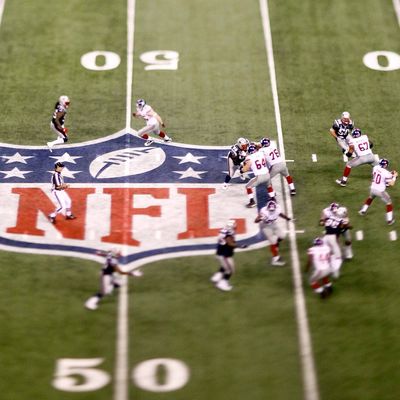
The NFL Players Association has enjoyed a string of victories over the league in recent years, including a high-profile win in the Tom Brady “Deflategate” case. Now, via The Wall Street Journal, it’s won another battle: An arbitrator has found that the NFL wrongly withheld roughly $120 million from a revenue pool it shares with its players, thus keeping a total of about $50 million out of players’ pockets. It’ll go back to them in the form of a salary bump next season.
The percentage of the NFL’s revenues that goes toward player salaries is spelled out in the league’s collective-bargaining agreement. Players get 40 percent of local revenue (like ticket sales), 45 percent of things like sponsorship money and revenue from the NFL Network, and 55 percent of media deals. The league can exclude certain revenues from this shared pot: money from personal-seat licenses, premium seating, and stadium-naming-rights deals. (The idea is that such things are often used to fund stadium renovation and construction, which will increase total revenue.)
But during an audit of the league’s finances, the NFLPA found the league had created another category for exempted money that isn’t in the CBA. According to an NFLPA spokesperson, the league had improperly categorized portions of ticket revenues, and the association filed a grievance last month. Last week an arbitrator sided with the players, ruling that the so-called “waived gate” revenues in dispute didn’t fit into any of the exempted categories. The arbitrator ordered the money to be returned to the shared pool immediately. All of the withheld money, which the league had amassed over the past three seasons, will be applied to the 2016 cap. (In other words, money won’t be retroactively given to players who were under contract in those seasons.) As a result, the salary cap will rise by about $1.5 million next season.
A league spokesperson told the Journal that the ruling was “a technical accounting issue under the CBA, involving the funding of stadium construction and renovation projects.”
The NFLPA’s executive director, meanwhile, was a bit more lively when speaking to the paper: Said DeMaurice Smith, “They created an exemption out of a fiction and they got caught.”





























